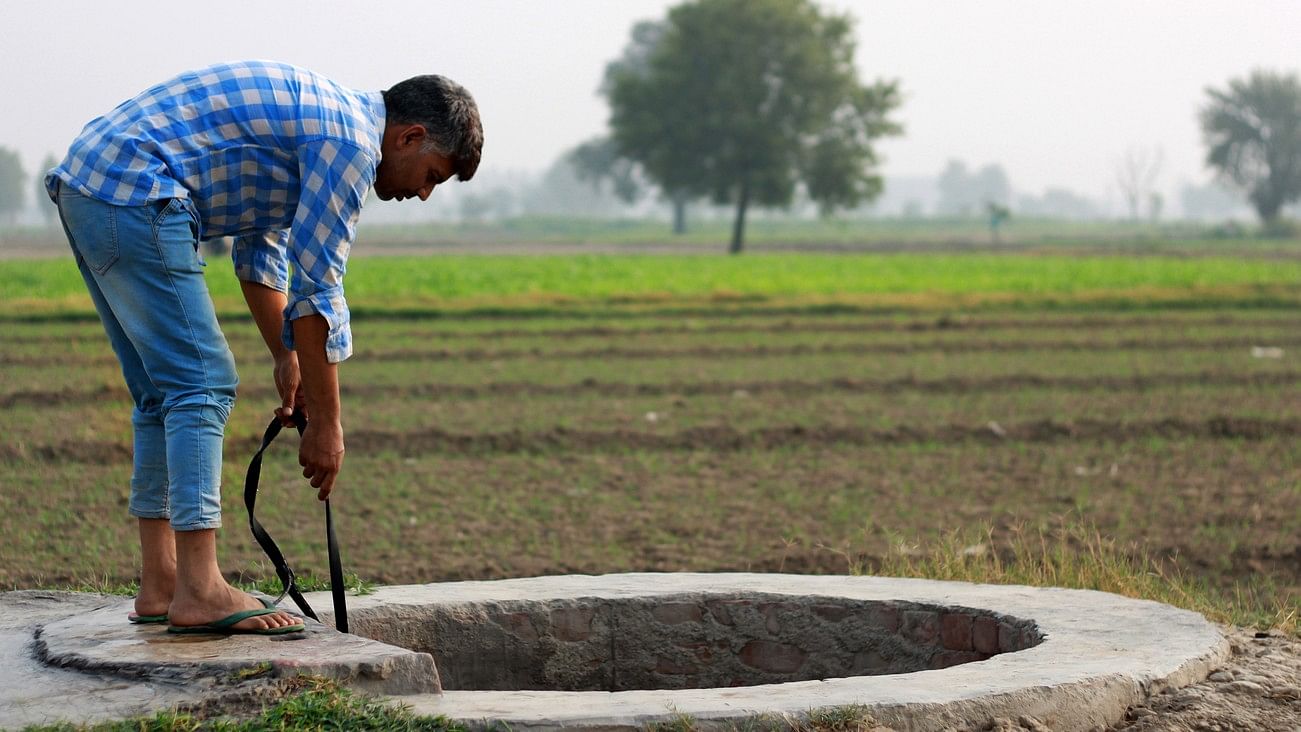
Representative image of a well
Credit: iStock Photo
Bengaluru: The Central Ground Water Board (CGWB) faced the music at the National Green Tribunal (NGT) for stating that drinking water safety was a state subject while admitting that a majority of states, including Karnataka, in the country have arsenic and fluoride contaminated ground water.
The CGWB report said that groundwater in 230 districts of 25 states, including three in Karnataka (Raichur, Gadag and Yadgir) had arsenic above 0.01 mg per litre (desirable level).
Similarly, 469 districts in 27 states, including all 31 in Karnataka, had fluoride content above 1.5 mg/litre.
The CGWB, while maintaining that water was a state subject, said the annual data taken from 17,500 water quality monitoring stations comprising borewells, dugwells, tubewells and other sources across the country had helped in identifying the occurrence of areas with high concentrations of the two elements.
The principal bench of NGT comprising Justice Sudhir Agarwal and expert member A Senthil Vel slammed the CGWB’s stand that water was a state subject.
“From the report, we find that while presence of toxic elements like arsenic and fluoride in groundwater, contaminating and also causing serious effects to human body are admitted but no effective steps have been taken by the CGWB, though under the law, it is the body responsible for regulating ground water,” the bench said.
The CGWB said the data on ground water quality was shared with the state governments for remedial measures and the Ministry of Jal Shakti has issued guidelines for control and regulation of groundwater extraction.
“The guidelines include clauses on measures to be adopted to ensure prevention from pollution in the plant premises of polluting industries/projects,” it said.
However, the NGT bench noted that the Supreme Court has rejected the claim that water is a state subject in the M C Mehta vs Union of India. “We are surprised that after such a long time, even today, CGWB has the audacity of shirking away from its own statutory responsibility and obligations and taking such flimsy grounds which have already been rejected by the Apex Court itself,” the bench said.
The tribunal impeached the states in the case and issued notice to governments and sought response within a month on the “urgent preventive and protective” measures to stop the negative impact on public health.